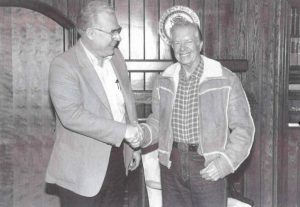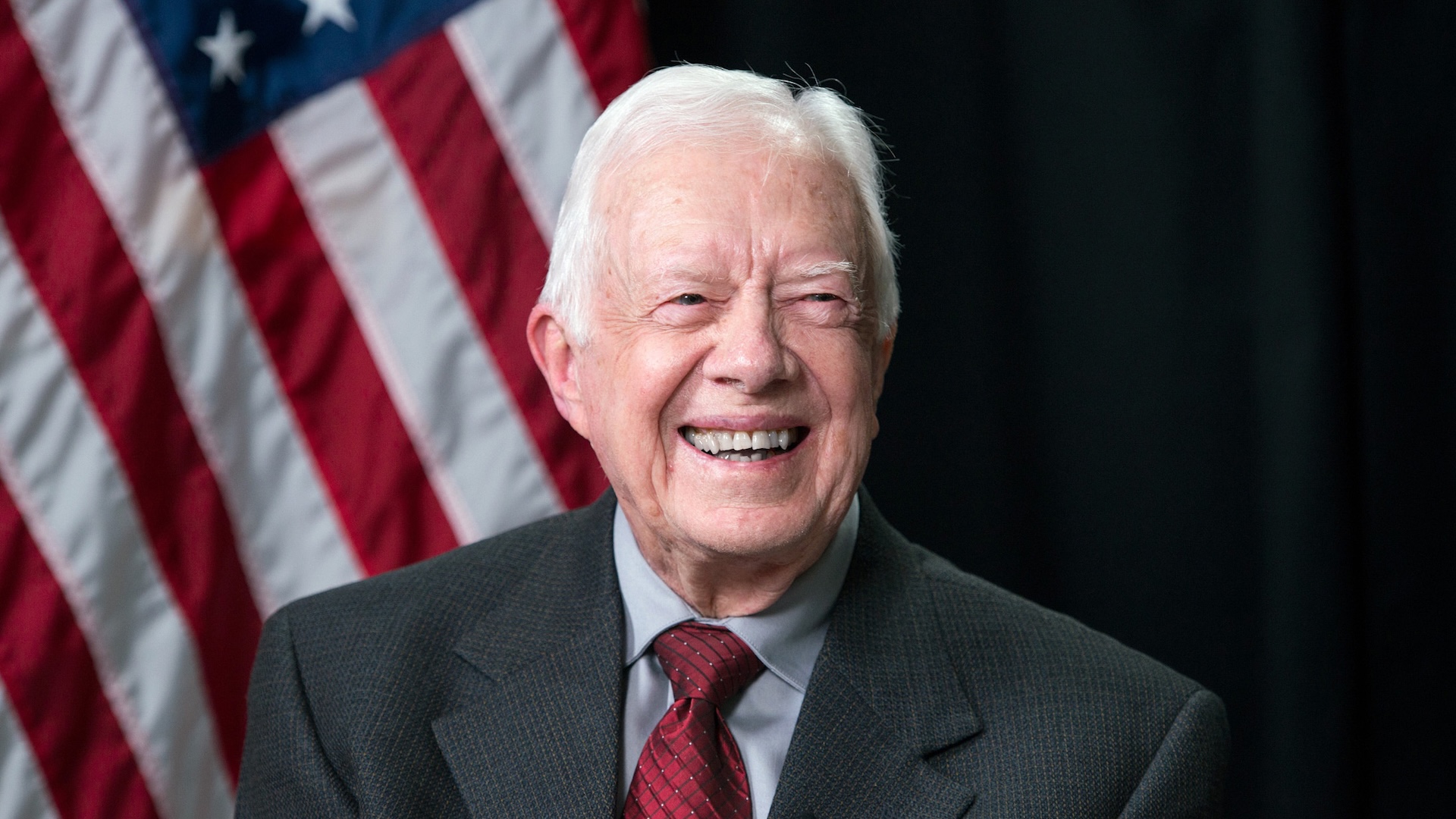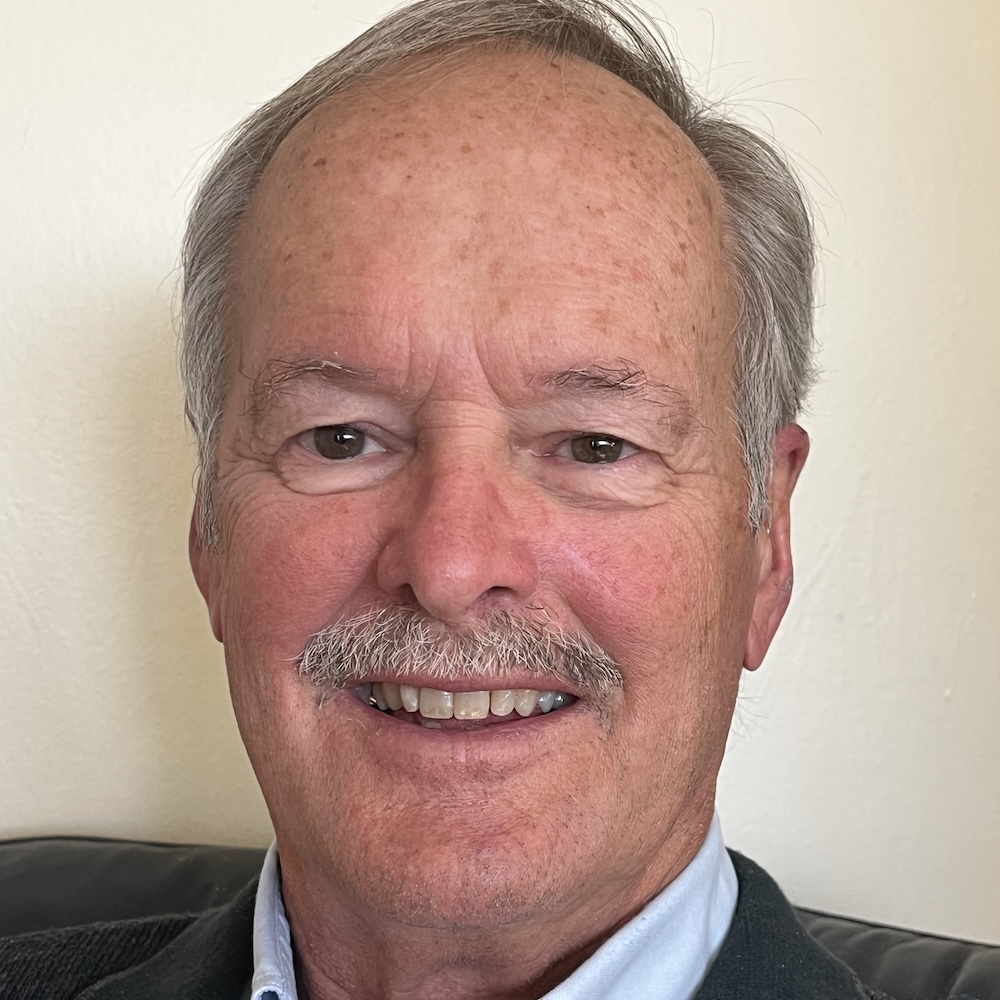Jimmy Carter died on Sunday, December 29. Since then, reflections have poured in about his character and the influence of his actions, both in the United States and worldwide.
Retired Covenant pastor Ken Bensen met former president Jimmy Carter through Habitat for Humanity. Ken grew up attending the Covenant church in Centerville, Iowa, attended North Park Theological Seminary, and preceded me as pastor of Eastside Covenant Church in Tucson, Arizona.
Sitting in the back seat of a Secret Service limousine with Carter for weeks as they launched Habitat work projects in Chicago, Michigan, and abroad, Ken gained unique insights into the former president. They became friends. Here are some key lessons he learned.
The Value of Truth
“Carter was too honest,” Ken told me. He refused to deny or dismiss the truth. He wouldn’t offer “spin” or obfuscate. He certainly would not use the “dictator playbook” strategy of telling a lie for his own ends.

His truth-telling came at a cost. After he admitted in a Playboy article that he had lust in his heart, his poll numbers sagged. And he told himself painful truths. He told Ken, “I knew I was going to lose the 1980 election to Ronald Reagan.”
When Ken asked why he thought so, Carter confessed, “I read too much.” He meant he immersed himself in minutiae. He sometimes overstudied issues, losing sight of the big picture. Most historians agree with Carter’s self-assessment.
Humility in Action
Carter’s humility was rooted in his upbringing. Raised in a modest home without running water, he grew up pumping water from a well and showering with a bucket. Despite his later success as a peanut farmer and president, he never sought to elevate himself above others.
He lived in the same house he owned as a farmer until his death. Carter befriended people from all walks of life, including his Secret Service detail. Ken recalls Carter praising them, saying, “The Secret Service makes everything possible.” He recognized their sacrifices and expressed gratitude for their service.
Carter’s humility extended to his work. On Habitat builds, he was the hardest worker—sawing wood, mopping roofs, and working alongside everyone else. “He was the first to arrive and the last to leave,” Ken said.
Compassion Through Service
Carter’s commitment to Habitat for Humanity reflected his desire to help those in need. Under his influence, Habitat expanded nationwide and to 70 countries, providing 13.4 million people with decent, affordable housing. These homes, sold without interest, transformed lives. Surveys revealed that new homeowners often secured better jobs, pursued education, and saw their children excel in school.
Beyond Habitat, Carter’s humanitarian efforts extended through the Carter Center. From promoting fair elections to eradicating disease and alleviating poverty, his work embodied his dedication to serving others.
A Faith Lived Out
For decades, Carter taught Sunday school at Maranatha Baptist Church. Ken attended one of his classes with 300 others, witnessing Carter explain an Old Testament story without notes, focusing on Christian ethics.
Carter believed in living out faith rather than legislating it. He and Rosalynn Carter exemplified this through annual weeklong work projects with Habitat. Their joyful service was contagious, turning work sites into places of laughter and celebration.
Lessons for Today
Today as American evangelicals, we face a crisis of virtue. Carter’s life offers a compelling example of living out faith with integrity, humility, and compassion. As Covenanters and as Pietists, we carry a beautiful adage from our history into the public square: “For God’s glory and neighbor’s good.” What is “good”? Do we know?
Perhaps this is the church’s hour to speak up and step up. The Apostle Paul tells us the church is the “pillar and foundation of the truth” (1 Timothy 3:15). Paul also calls us to “Clothe yourselves with compassion, kindness, humility, gentleness and patience…over all these virtues, put on love” (Colossians 3:12, 14). Paul is inviting us to be like Jesus—and Jimmy Carter took those words to heart.
By sharing stories of virtuous lives like Carter’s, we can combat today’s cynicism that says, “No one can be trusted. No one strives to be virtuous.” Indeed, virtuous people do exist. Jimmy Carter is proof. Let us extoll these people, trust them, follow them. More importantly, we can strive to embody those virtues ourselves, furthering the legacy of Carter’s example and our own Pietist heritage of faith lived out in action.














